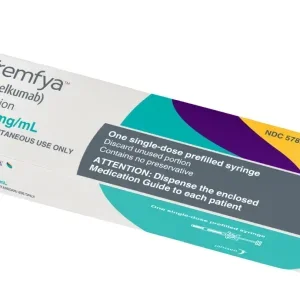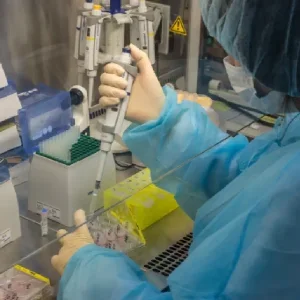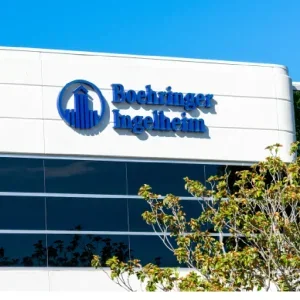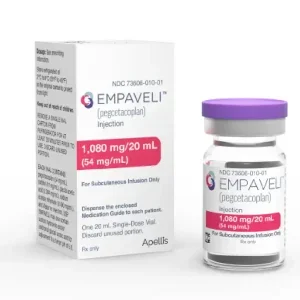
Daiichi Sankyo and Merck announced that their anti-cancer drug ifinatamab deruxtecan (I-DXd) continues to show promising outcomes in treating patients with a type of lung cancer.
The announcement is based on results from an interim analysis of the dose-optimisation part of the ongoing Phase 2 IDeate-Lung01 clinical trial.
The study data revealed that I-DXd showed promising objective response rates in patients with pretreated extensive-stage small cell lung cancer (ES-SCLC)
Ifinatamab deruxtecan is a potential B7-H3 directed antibody-drug conjugate (ADC), discovered by Daiichi Sankyo and developed using its in-house DXd ADC Technology.
In October last year, Daiichi Sankyo and Merck initiated their collaboration to jointly develop and market patritumab deruxtecan (HER3-DXd), I-DXd and raludotatug deruxtecan (R-DXd).
Daiichi Sankyo oncology clinical development global head Mark Rutstein said: “The objective response rate and median overall survival of nearly a year along with the preliminary intracranial responses observed reinforces the potential for ifinatamab deruxtecan to improve outcomes for patients living with this difficult-to-treat type of lung cancer.
“We look forward to seeing additional results from the extension part of the IDeate-Lung01 phase 2 trial and the recently initiated IDeate-Lung02 phase 3 trial where we are evaluating ifinatamab deruxtecan in patients with extensive-stage small cell lung cancer versus treatment of physician’s choice of chemotherapy.”
IDeate-Lung01 is a global, multicentre, randomised, open-label, two-part, Phase 2 clinical trial designed to evaluate the safety and efficacy of I-DXd in patients with ES-SCLC.
In the study, ES-SCLC patients receiving I-DXd in the 12mg/kg and 8mg/kg cohorts showed a confirmed objective response rate (ORR) of 54.8% and 26.1%, respectively.
The ORR was assessed by blinded independent central review (BICR).
Also, the 12mg/kg cohort showed a median duration of response (DoR) of 4.2 months and the 8mg/kg cohort showed a DoR of 7.9 months.
In addition, the study showed a disease control rate (DCR) of 90.5% and 80.4% were observed in the 12 mg/kg and 8 mg/kg cohorts, respectively.
The 12 mg/kg dose has been selected for the dose expansion part of the clinical trial.
In a subset of patients with brain target lesions at baseline, an intracranial ORR of 50.0% and 66.7% were observed in the 12mg/kg and 8mg/kg cohorts, respectively.
I-DXd showed a safety profile in the IDeate-Lung01 study that is consistent with that observed in previous trials with no new safety signals identified.
Merck Research Laboratories global clinical development senior vice president and oncology head Marjorie Green said: “These results demonstrate promising objective response rates in patients with pre-treated extensive-stage small cell lung cancer, a patient population with a poor prognosis and limited treatment options.
“We are encouraged by these results supporting the potential of B7-H3 as an actionable target in small cell lung cancer and look forward to advancing our pivotal clinical development program for ifinatamab deruxtecan.”






